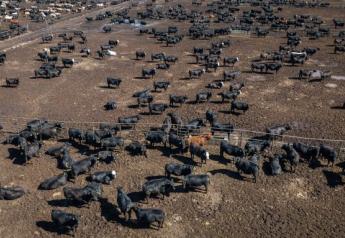Michigan Agricultural, Chemistry Industries Call for Congress to Intervene on Rail Labor Dispute

Leaders of trade organizations representing hundreds of Michigan businesses today called on Congress to intervene in the rail labor dispute that threatens to shut down America’s freight rail network in early December.
“A rail strike would be devastating for Michigan’s economy and cannot be allowed to occur,” said Chuck Lippstreu, president of the Michigan Agri-Business Association. “Michigan agriculture is a leading economic engine for our state, pumping more than $100 billion into our economy every year. Rural businesses depend on rail to move grain, fertilizer and many other products. A rail strike would pile on to existing logistics challenges in our industry and snarl the agricultural supply chain.”
“Rail service is essential to the transportation of chemicals key to manufacturers of all kinds, as well as water treatment, refining and electricity generation,” said John Dulmes, executive director of the Michigan Chemistry Council. “The business of chemistry would be among the first impacted, and hardest-hit, in the event of a rail network shutdown, and we are counting on Congress to act.”
In September, the Biden administration helped broker tentative contract agreements between major rail carriers and their labor unions. Unfortunately, these agreements have been rejected by several unions. The ‘status quo’ period where unions have agreed to continue working ends Friday, Dec. 9. With no work agreement and no Congressional action, a strike would begin. Certain commodities shipped by rail could start to be embargoed as soon as this weekend.
President Joe Biden yesterday called for Congress to intervene and approve the contract agreements reached in September.
Dulmes said chemical manufacturers in Michigan rely on regular rail shipments to operate and would face potential disruptions within days of a strike. Chemicals transported by rail support industries – including automotive, semiconductor and steel production – accounting for 4% of GDP. Freight rail is also needed to deliver essential services to people across Michigan, particularly for chlorine and other water treatment chemicals.
A rail strike would also be a major disruption for rural Michigan, Lippstreu noted, with grain and fertilizer transportation, and access to export markets of particular concern. A wide range of Michigan-grown products are sent by rail to markets across the nation and to export terminals. Additionally, Michigan farm supply retailers depend on rail service for fertilizer shipments, and a rail strike would further tangle fertilizer supply chains that have faced historic disruption in recent years.
A rail strike would amplify existing rail service problems faced by Michigan and U.S. businesses that primarily stem from national ‘Class I’ freight rail carriers. These rail service disruptions were recently termed a “service meltdown” by the chairman of the U.S. Surface Transportation Board.
“Our industries and many others need reliable, timely rail transportation service, and this threat of a rail strike is the latest potential disruption faced by Michigan businesses,” said Dulmes. “Long-term reforms are still needed to ensure the viability of freight rail, but a rail strike would be a huge setback and greatly amplify existing problems in the network. We are counting on Congress to act without delay and avert such a disruption.”
About the Michigan Agri-Business Association: The Michigan Agri-Business Association serves as a strong advocate and dedicated resource for Michigan’s food and agriculture sector. The Association’s 300 members span the agricultural value chain. They include retailers that provide seed, fertilizer, crop protection and technology to farmers; businesses that handle and export grain; animal feed suppliers; food processors; logistics companies and beyond. Learn more at www.miagbiz.org.
About the Michigan Chemistry Council: The Michigan Chemistry Council, established in 1967, represents Michigan’s chemical manufacturers, formulators and distributors. Chemistry is one of Michigan’s largest manufacturing sectors, supporting more than 80,000 Michigan jobs and directly impacting more than 96% of all manufactured goods. Chemical products are one of the leading categories of freight rail moved in Michigan. Learn more at www.michiganchemistry.com.







